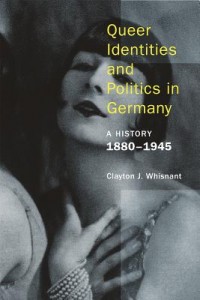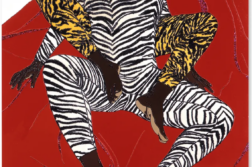 Queer Identities and Politics in
Queer Identities and Politics in
Germany: A History, 1880-1945
by Clayton J. Whisnant
Harrington Park Press
326 pages, $95. (paper $40.)
CLICKITY-CLACK, clickity-clack. I whipped my head around to see a gaggle of drag queens racing down Grunewaldstraße in stilettos, boas fluttering in the wind. It was the summer of 1990 in West Berlin, a pivotal moment between the fall of the Berlin Wall in November of 1989 and formal German reunification in October 1990. East and West Berlin still seemed to exist in a historical bubble. One could travel without hassle to the East, passing through still boarded-up trolley stations along the dead-man zone. East Berlin seemed in a postwar suspended animation: rubble strewn in the streets, walls pockmarked with bullet holes, and artists squatting in abandoned buildings. Life in West Berlin was heavily subsidized to maintain the population, so it was a haven for artists and “alternative Leute”—Germans who couldn’t stomach the stereotypical rule-abiding conservatism of West Germans. What could be more rebelliously countercultural than a drag cabaret—part song and dance, part political satire—staged weekly by the band of fabulous queens I encountered that balmy evening? I became an instant groupie. Naturally, it reminded me of the musical Cabaret and the work it was based upon, The Berlin Stories (1939), Christopher Isherwood’s tales of his experiences during another pivotal time in Berlin.






